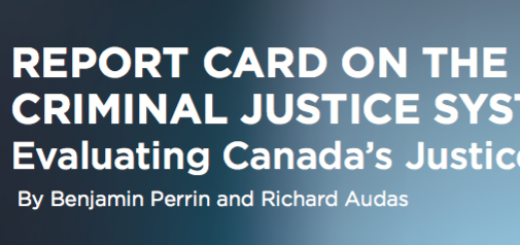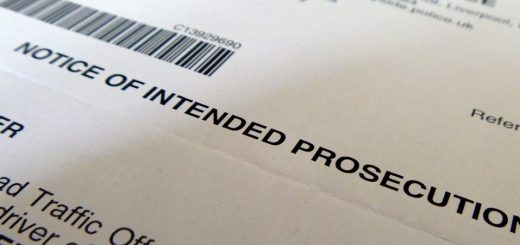A Right to be (Re)tried in a Reasonable Time: SCC Allows Appeal in R v JF

In the Canadian criminal justice system, an accused person has a constitutional right to be tried within a reasonable time. The Supreme Court of Canada (SCC) has previously determined how long, exactly, is a presumptively “reasonable time.” But when a person is tried again for the same offence—an appeal court orders a new trial—how long, then, is reasonable? The SCC answered this question earlier this year in R v JF, 2022 SCC 17 [“JF”].
Facts of the Case
In February 2011, JF was charged with seven counts of sexual assault against his daughter. The trial began in December 2013 and the prosecution began a voir dire (a hearing to determine the admissibility of evidence), which was then adjourned for 10 months. When it resumed in October 2014, the voir dire was completed. The trial judge rendered a decision in the voir dire in May 2015. The trial resumed, and was completed, in January 2016. Argument was postponed until May 2016. The trial judge reserved its judgement. JF was acquitted in February 2017.
The Crown appealed and on June 13, 2018, the Quebec Court of Appeal ordered a new trial. JF’s retrial was initially scheduled for April 2019. When JF filed for a stay, the retrial was moved up to March 2019. The anticipated retrial delay was approximately 10 months.
JF filed a motion for a stay of proceedings in December 2018, alleging for the first time that his section 11(b) right to be tried within a reasonable time had been infringed. Different courts calculated the trial delay differently, but each found the delay in JF’s first trial to be approximately 70 months. The Court of Québec found the delay grossly unreasonable and entered a stay of proceedings.
The Quebec Court of Appeal held that the delay for the first trial could not be considered for a stay entered after an appeal court had already ordered a new trial. The Court applied a two-step test that determined the delay was unreasonable based on the first trial’s delay. The Court upheld the stay of proceedings and dismissed the appeal.
The Crown appealed to the SCC.
SCC Holds that Retrial Delay Reasonableness Does not Consider First Trial Delay
Chief Justice Wagner, for an eight-judge majority, allowed the appeal. He gave an easy answer to the question of retrial delay: Retrial delay is counted not from the time a charge is laid, but from the time an appellate court orders a new trial. Delay during the first trial does not count. Additionally, the Chief Justice found no need to create new ceilings for retrials. The same ceilings apply to retrials as to trials (18 or 30 months, depending on the offence).
The easy answer came, as most SCC decisions do, with some guidance. The Chief Justice proposed two factors relevant to assessing the reasonableness of retrial delay:
- That retrial hearings should be given priority for scheduling, and
- That conducting a retrial should generally take less time than a first trial (JF, paras 69-71).
Section 11(b): The Right to be Tried Within a Reasonable Time
In 2016, the SCC created limits on the amount of time considered reasonable for an accused person to await trial. These limits, known as the “Jordan framework” (named for R v Jordan, 2016 SCC 27 [“Jordan”], the case that created them) are meant to protect Canadians’ right to be tried within a reasonable time under section 11(b) of the Canadian Charter of Rights and Freedoms. (For more on Jordan, see Michelle Cook’s post, “Overthrowing Precedent”.)
Under Jordan, trials must generally be completed within 30 months from the time a charge is laid (or 18 months, for provincial court offences). If a trial is delayed outside of these periods, that delay is presumptively unreasonable and the accused is entitled a stay of proceedings. These ceilings are not absolute but a mere presumption. If the Crown can prove that a trial delay in excess of 30 months was reasonable, a stay of proceedings may not be granted. Similarly, if an accused can show that a trial delay, though less than 30 months, was unreasonable, they may still be entitled to a stay.
The SCC released the Jordan decision after JF’s trial was completed, but before the verdict was rendered.
JF raised specific questions not neatly caught by the ceilings as laid out in Jordan: what is the presumptive ceiling for a retrial, as opposed to a first trial? Can trial delay from the first trial be counted towards the total trial delay on a retrial?
A Sole Dissent, or a Unanimous Decision?
For Justice Suzanne Côté, the determinative fact is that JF’s first trial was reserved for judgement when the SCC released its decision in Jordan. I am not convinced that this is a legal reason to permit a stay of proceedings for delay. Presumably, the principles set out by the SCC in Jordan would apply no less to a case concluded before it, on a retrial, than after it. I recognize that Jordan created a change in the law, and perhaps from that perspective this particular accused should not lose the benefit of his trial delay after the fact. However, would it not have been a more legally defensible position to apply the Morin factors (the assessment that predated Jordan) to determine that a stay was warranted? This point in the dissent, for me, is simply unclear.
Justice Côté writes a curious dissent, in the sense that she doesn’t seem to truly “dissent” at all. In fact, she agrees with the approach of the Chief Justice, and his principles, too. The real point of contention between Justice Côté and her eight colleagues? An accused’s right to seek an acquittal cannot prevent them from also seeking a stay.
An accused’s decision to seek an acquittal, for Justice Côté, is not a legal strategy. In this discussion, she suggests that an accused who fails to obtain the acquittal they did not strategically seek can then apply for a stay, if the trial delay was in excess of the Jordan ceilings.
The legal distinction is less than trivial. A stay of proceedings is not a legal finding that a person is not guilty. That person remains, for all intents and purposes, an accused person. A person who is acquitted enjoys the validity of a court proclaiming them “not guilty” of an offence.
It seems to me that an accused person with a legally valid claim that their section 11(b) rights have been breached may be better served by getting the whole thing over with via a stay of proceedings than by prolonging their time in the criminal system. “Seeking an acquittal,” as Justice Côté puts it, involves enduring the entire trial process, all the while hoping to successfully defend a case that the Crown has already deemed has a reasonable prospect of conviction.
The risk, of course, is perception: No one wants to get off on a technicality. But in a society that increasingly condemns those merely accused of crimes, with or without a legal assertion of guilt, there is a risk of negative perception anyway. An accused who seeks and obtains an acquittal may simply be seen as lucky, or the acquittal may be attributed not to innocence but to having a particularly talented lawyer.
Even on acquittal, an accused person is never “innocent.” The most they can hope for is “not guilty.” Practically speaking, I am not sure what distinction Justice Côté seeks to protect.
I say that Justice Côté seems not to dissent at all because she states repeatedly that she does agree with the Chief Justice in not only approach but also principle. The dissent seems less like a legal disagreement (in principle, the decision may as well be unanimous) and more like a disagreement in application. Perhaps Justice Côté simply felt the result reached by her peers was not just, and so found a way to advocate for the opposite.
A Right to be Tried and a Duty to Seek Trial
Legally speaking, JF is quite a straightforward decision. Mired in this decision is one big change to how trial delay is assessed: a positive duty on the part of the accused.
The Chief Justice recognized an accused’s “duty to act proactively” in assuring their own section 11(b) rights are respected (JF, para 36). An accused must raise any concern that their section 11(b) rights are not being respected in a timely manner and “can be faulted for their inaction” (JF, para 83).
Any trial delay attributable to actions of the accused are deducted from the total trial delay to calculate the actual delay, in the Jordan framework. The SCC is now adding to that framework. It seems that, after JF, if an accused doesn’t raise any concern whether they will be tried in a reasonable time, that may be used by a court to determine whether any trial delay in excess of the ceiling is reasonable.
It seems to me that placing this type of positive duty on an accused is asking an accused to hold the state accountable, thus lessening the burden on the Crown to hold itself accountable. But wasn’t that the problem that the court tried to address in Jordan? An accused can be “faulted” for failing to point out to the court system that their trial is taking too long to complete.
But how is an accused supposed to know what “too long” is? An accused without the benefit of thorough (read: expensive) legal advice may not know how long is too long. How can they be faulted for failing to raise a concern in a timely fashion, when they may feel that two and a half years is too long? (And what is “timely”, in this scenario? The SCC does not provide a concrete answer.) Does this duty privilege accused persons of means—that is, the accused that can afford a lawyer to inform them of these 18- or 30-month limits, and to file the application for a stay of proceedings?
The duty to act proactively seems, in my view, more like a duty to seek one’s own trial. But the culture of complacency to which both the majority and dissenting opinions refer is not complacency of the criminal accused. It is complacency of the state. The Charter right belongs to individuals. The protection of the section 11(b) right is protection against the state. To ask accused persons to share equally in that onus minimizes the importance of the Charter in shielding citizens from rights-infringing state conduct.
Certainly, an accused who delays their own trial cannot claim the state has wronged them. But an accused who does nothing causes no delay. An accused who does nothing should not suffer less protection on that basis.








Join the conversation